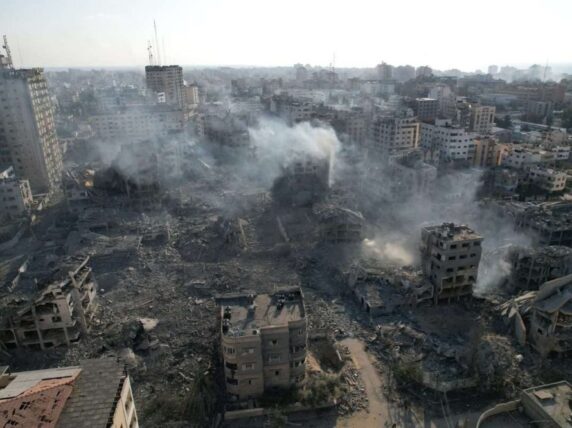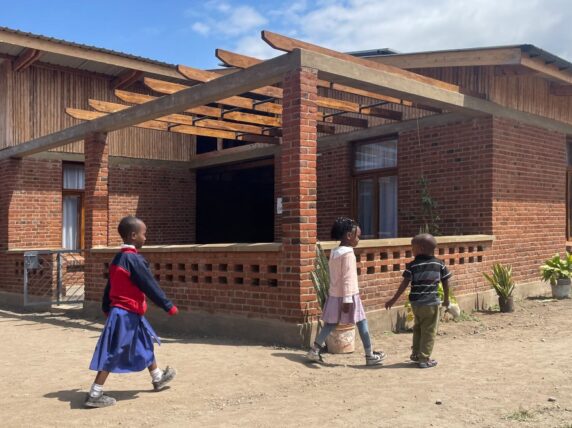No room to operate: Why is children’s surgery missing from the global health agenda?
How many more children will experience prolonged ill health or lose their lives before global health champions finally prioritise children’s surgical care? At Kids Operating Room (KidsOR) this is the question we keep asking ourselves.
Since we began in 2018, KidsOR has been at the forefront of strengthening surgical care systems in Africa, Latin America and South Asia. By establishing state-of-the-art, child-centric operating rooms and championing the professional development of paediatric surgical practitioners, our UK and Kenya-based charity has supported over 100,000 children to access timely, affordable, and high-quality surgical care in safe environments. Children like Jibril, who was born with a hernia and finally received surgery at the age of 10, show why this matters.
Together with our partners and dedicated paediatric surgical experts, KidsOR firmly believes in providing the world’s children— often from families with the fewest resources – with surgical care throughout their development. Our work not only changes families’ lives, it bolsters health systems, making them more resilient in the face of health emergencies, including pandemics, and brings countries closer to achieving the 2030 Sustainable Development Goals. But we face a huge obstacle: there is no room to operate in the global health policy arena.
Surgical care is missing from health and development agendas
Surgical care remains largely underrepresented in global health and international development agendas, and this influences national health and developmental priorities.
Our interactions with key stakeholders consistently demonstrate that they understand the importance of bolstering paediatric surgical care and its wider scope. Yet, there are caveats. Countless voices put forward arguments, such as “infectious diseases remain the paramount global challenge, jeopardising global health security.” Others contend that “limited funds in official development assistance for health cannot accommodate paediatric surgical interventions after other priorities”. Another perspective suggests that “surgical procedures demand too much infrastructure and are costlier than other global health measures”.
But the ultimate goal should be more than just disease-specific interventions. We should be striving for holistic well-being: healthy, happy and thriving children, not merely those protected from malaria or measles. And we’ve observed the tragic reality of children with surgically correctable conditions dying because they don’t have the necessary care. We’ve seen the aftermath of injuries like untreated burns , witnessed the stigma tied to cleft palates, and the social ostracization that children with untreated fractures endure.
Children’s surgical care: a cost-effective public health solution
How long must we wait before universal access to surgery and children’s surgical care secures the global recognition and funding they rightfully merit? Surgical care has been repeatedly shown to be among the most cost-effective public health solutions. The thought of countless children dying due to delayed, inequitable or entirely absent surgical care is chilling.
To bring attention to this urgent issue we are organising a pivotal policy event at the Houses of Parliament on 22 November 2023.
We’ve also agreed a five-year strategy to strengthen the capacities of paediatric surgical care systems in various resource-limited settings. Our aim is to ensure children receive the safe and high-quality surgical care they deserve. Our fundraising campaign, No Room To Operate, is the financial backbone supporting this mission.
By 2027, with our global partners, we aim to:
- create the capacity for 200,000 children a year to access safe surgery
- deliver 1,000 training opportunities for paediatric surgical care teams, including paediatric surgeons, paediatric anaesthetists, surgical nurses and biomedical engineers
- strengthen paediatric surgical health information systems in our partner countries
- make surgery for children a core pillar in national plans in at least 10 low-income countries
- ensure surgical health systems strengthening is included in the funding that select donor nations and global health initiatives provide for health systems strengthening.
These are ambitious, but achievable, goals. To get there, we need to strongly advocate for children in need of surgical care to be included in the global discourse on children’s health. We will need to carve out our niche within the UK’s and other high-income countries’ global health policies and international development sectors to show that there is, in fact, room to operate. And not just for us but for all global surgery actors.
Most importantly, we will need to rally all those in the global health arena who might be touched or influenced by our mission and its impact on their strategic priorities or health equity and children’s rights ideals.
The dire consequences of untreated surgical conditions among children are alarming. Surgical care must become a top priority in global health discussions. The urgency to act is clear. And the time to act is now.
If you want to know more about our work, or would like to be part of the discussion with partners on how to resolve the crises in global children’s surgery, please register your interest to attend our House of Lords event.
Category
News & Views



